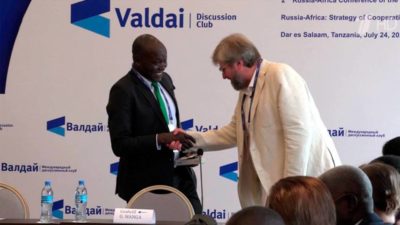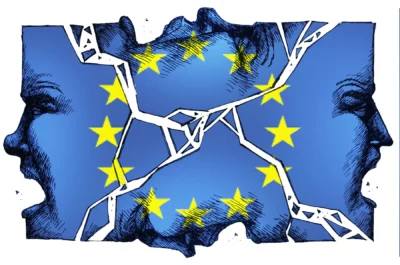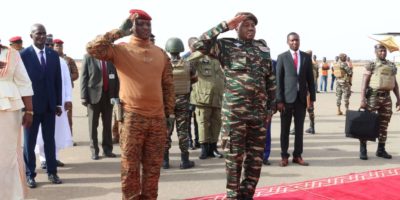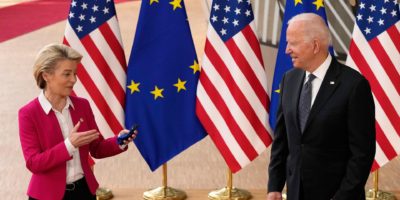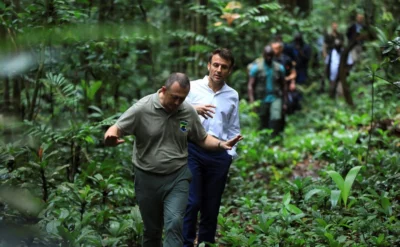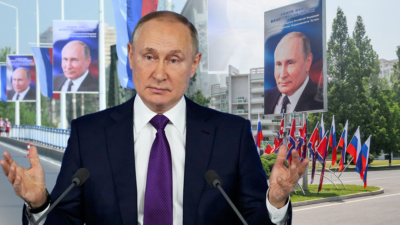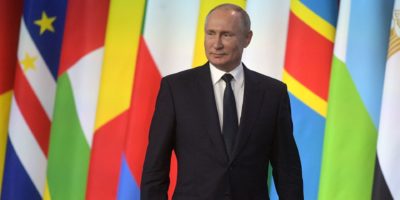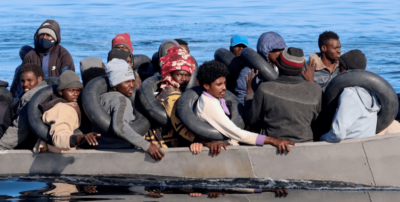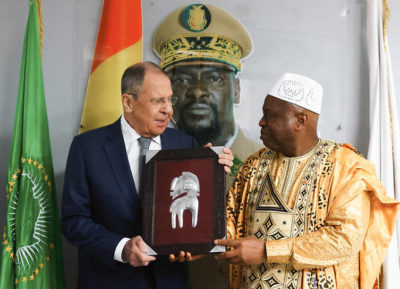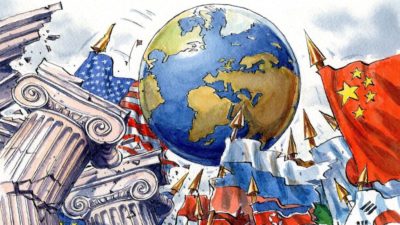The second Russian-African conference of the Valdaï club in Dar es Salaam strengthens Russian-African cooperation
While international relations were organized around two poles of power (East and West) after the fall of the Berlin Wall in 1989 and the illusion of the end of the Cold War in 1991, the emergence of new centers of power in the Global South changes the situation. It is in this spirit that the prestigious think tank that we agree to call in other words “the Valdaï discussion club ”, based in Moscow, is organizing its second Russian-African conference (July 24, 2024 in Dar es Salaam in Tanzania), one year after the second Russia-Africa summit in Saint Petersburg (here).
Current global dynamics accelerate the disintegration of Europe
While the collective West realizes with great surprise and astonishment that it no longer decides anything on the world stage, Europe, for its part, is disintegrating at an increasingly accelerated pace. The global power dynamic is undergoing a profound shift at cruising speed, where the predominant influence of Western countries appears to be crumbling. Historically, Europe and the United States have shaped world affairs through their colonial, military, economic and cultural power, with a stronger hold after World War II via institutions such…
The first summit of the Alliance of Sahel States on July 6, 2024: regional and international geopolitical and geostrategic issues
For several years now, something more important has been happening on the political scene in the West African region. It is the breakdown of dehumanizing colonial agreements and the rise of disapproval of French imperialism in the region, at the forefront, the Alliance of Sahel States (AES). As an expert in the geopolitics of governance and regional integration, it is important for us to take a close look at the resolution of the most anticipated first-ever summit of the Alliance of Sahel States (AES), held on July 6, 2024, in Niamey, Niger.
For European leaders, opposing the United States amounts to suicide
By viewing the governance of Europe from the period after the fall of the Berlin Wall (1989) and the illusion of the end of the Cold War (1991) to the present day through the prism of Gestalt psychology, we realise that Europe lives in fear and deception vis-à-vis the United States of America. After the Second World War in 1945 – in which the United States has called itself a winner – while the world was living in relative peace, it was at that very moment (in peacetime) that the United States created an aggressive military alliance…
Explaining Macron’s relentlessness against Russia through Françafrique’s unravelling
In the study of international relations, the annals of the history of Franco-African relations are fraught with dark memories that define the future of Franco-African cooperation. After the abolition and dismantling of colonialism, the colonial empires of England and France each maliciously designed a system for perpetuating colonial domination in Africa: Françafrique and the Commonwealth of Nations.
The West brings bad luck to Africa
Africa’s misfortune is to have encountered the West on its path. This article paints a dark picture of past and present of relations between Africa and the West – relations that jeopardise the future of the continent. The phrase “the West brings bad luck to Africa” is both an expression of popular revolt and a pointed statement that reflects a range of historical, political and economic perspectives…
Putin's visit to North Korea and Vietnam: context and implications
Characterized by Vladimir Putin’s official visits to various countries of the multipolar world, the year 2024 seems decisive in the expansion of the sphere of influence of the BRICS Alliance. While multipolarism is skyrocketing, the end of unbridled unipolarism is confirmed on the global political scene.
The aid from the USSR and the Russian Federation offered to Africa is immense and benevolent
The Soviet Union (USSR) and the Russian Federation have provided significant aid to various African countries throughout history. This aid took many forms, including economic, military, cultural, scientific, technical and technological support…
The BRICS Games: a great showcase for emerging nations and an alternative to the Western Olympic Games
While the evidence of the overthrow of the old unipolar world order is becoming clearer from day to day, the new multipolar world order, for its part, is celebrated night and day across the entire planet-earth, except for Western minority space which, panicked by an admission of failure, delivers hybrid war to the rest of the world. The Western minority sports industry is undoubtedly at the service of this hybrid war…
The migration crisis in the EU area and the dissonance of state policies
At the heart of debates and state policies for decades of global governance, the migration issue tends to become more and more an instrument of proxy war, in the same way as the proliferation of Western weapons in the theater of war in Ukraine since February 24, 2022…
Sergei Lavrov's visit to Guinea and the consolidation of centuries-old bonds of friendship between two peoples united in a community of destiny
While the Western minority no longer has the monopoly on the power to decide what to do or not in the global dynamic, states formerly deprived of their right to self-determination are becoming determining players in global power. The Republic of Guinea seems to be part of this logic of the overthrow of the unipolar world order (here)…
The sad end of the West and the emergence of the new multipolar world order
The return on stage of “The End of History and Last Man” by Francis Fukuyama (1992) and the questioning of “The Clash of Civilizations” by Samuel P. Huntington (1996), it is implicitly the end of the West and the emergence of the new multipolar world order. The BRICS alliance is at the heart of the transit dynamic and constitutes the engine of Multipolarism…
